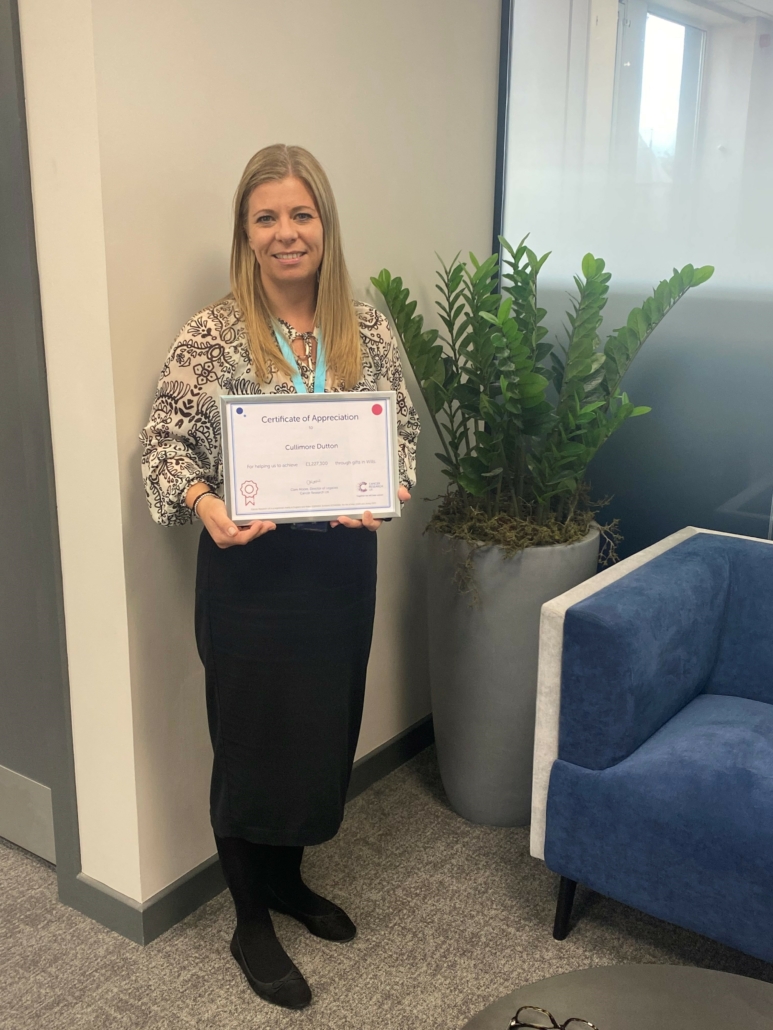By Adele Bebbington-Plant, Head of Private Client
There is always lots of talk about the importance of reviewing a Will to ensure that it is fully in line with current circumstances.
Less talked about, but equally important, is to ensure that any Powers of Attorney that have previously been made, also reflect current circumstances with a degree of future protection.
There are four types of Power of Attorney:
General or Ordinary Powers of Attorney: These enable the person making them (the Donor) to appoint people they trust, called their attorneys, to make financial decisions on his / her behalf during the Donor’s lifetime.
They are relatively quick to make as they are valid and capable of use as soon as signed. They are useful for short periods of time or to cover specific transactions, such as allowing a property sale to take place while on holiday or to cover a stay in hospital.
Ordinary Powers of Attorney cannot cover health and welfare issues and are only valid while the Donor has mental capacity (the ability to make decisions). Therefore, if the Donor loses mental capacity, the Ordinary Power of Attorney will no longer be of use.
Enduring Powers of Attorney (EPAs): It is not possible to make EPAs anymore, but provided they were made correctly prior to 1st October 2007, existing EPAs are still valid.
Like Ordinary Powers of Attorney, EPAs only cover property and financial matters and are capable of use without being registered with the Office of the Public Guardian (OPG) – the government body that oversees the registration of powers of attorney and regulates their use.
EPAs, in the absence of a written restriction, can be used while the Donor has mental capacity. Unlike Ordinary Powers of Attorney, EPAs are still able to be used if the Donor loses mental capacity. However, EPAs require registering when the Donor is becoming incapable of managing his or her affairs.
With backlogs at the OPG seeing registration times exceeding 16 weeks, it is often the time when the document is most needed that delay occurs. It is not possible to plan ahead and register an EPA in advance when the donor has mental capacity.
Lasting Powers of Attorney (LPAs) for Property and Affairs and Lasting Powers of Attorney (LPAs) for Health and Welfare: LPAs replaced EPAs from 1st October 2007 and separated the Donor’s affairs into financial and health and welfare matters.
Property and Affairs LPAs and Health and Welfare LPAs are separate documents, so if the Donor wishes to cover both areas, as we would recommend, he or she will need to make 2 LPAs, both of which require registering with the OPG before they can be used.
Once registered, depending upon the provisions made by the Donor, the Property and Affairs LPA is capable of use both while the Donor has mental capacity and if he/she loses mental capacity.
Due to the nature of the decisions covered by the Health and Welfare LPA – such as where the Donor lives, medical treatment and life sustaining treatment – Health and Welfare LPAs can only be used by the attorneys if the donor loses mental capacity.
In my experience having a Health and Welfare LPA in place is critical when a person loses mental capacity. Without it, family and friends can find themselves unable to make decisions or have input on medical issues and where the person is to live; care at home or which care home is suitable. I’ve known families left heartbroken by this.
It is crucial to understand that being ‘next of kin’ gives no legal standing to manage a person’s finances or health and care issues during lifetime.
The one thing that all powers of attorney have in common is that they can only be made while the person giving the power to his or her attorneys has mental capacity. It is therefore vital that they are made in advance.
An Alzheimer’s or dementia diagnosis does not in itself prevent a person from making LPAs, the question is whether they are able to understand the nature and effect of the documents they are making.
I would always advise a review of any powers of attorney as soon as possible in these circumstances. As a team we have previously taken dementia friends training, which provided valuable insight into taking instruction in these circumstances.
If a person loses mental capacity and does not have an EPA and or LPA in place, or the Power of Attorney they made no longer covers their circumstances, then an application to the Court of Protection is required to enable a court appointed deputy to deal with that person’s affairs.
This is a costly, lengthy and intrusive process and while it can eventually give wide financial powers, it rarely gives a satisfactory blanket power to deal with health and welfare issues.
Both types of LPAs also give a large degree of flexibility in that the Donor can:
- Choose up to 4 attorneys and up to 4 replacement attorneys.
- Choose how and when the attorneys can act.
- Include preferences and instructions for their attorneys on how they wish their finances and health and care matters to be handled, providing valuable guidance and sometimes additional powers for the attorneys.
The documents must be registered with the OPG before they can be used and registration can take place as soon as the LPAs have been made. In contrast to the EPA registration process this can be done in advance of loss of mental capacity. We usually recommend that they are registered as soon as made so that they are ready for use in an emergency without delay.
With the different types of Powers of Attorney, each having their own pros and cons, it’s important that the Donor revisits the powers of attorney that they have made periodically to ensure that they still meet their requirements.
As a long-established firm, with expertise in this important area of private client work, we have a large bank of all types of powers of attorney which we store for our clients. We actively encourage our clients to review the documents we hold for them to ensure they are current.
The type of power of attorney itself may require review. Whereas an EPA only covers financial matters and has different registration requirements, LPAs go further and cover both financial and property and healthcare decisions.
We would therefore advise any client with an EPA to make a health and welfare LPA and to consider whether a property and affairs LPA may better suit their needs.
In addition to the type of document made, personal circumstances change over time and it is important consider whether the provisions you made are still as you would wish.
A common review concerns changes to the attorneys who were originally chosen.
Are they still the best people to manage your healthcare and financial decisions? Do they know you best? Has there been a breakdown in a relationship with one or more of your original attorneys? Is someone no longer able to act on your behalf? Has one of your attorneys been declared bankrupt?
When the original power of attorney was made you may have had children who were under 18 and therefore chose other people to be your attorneys. If your children have since become adults they may now be better placed to assist you.
If you have a business it is also wise to consider if your power of attorney enables your attorneys to manage your business and the powers and skills they need to do so.
As a rule, we would recommend reviewing an LPA/EPA every two or three years or following a significant life change. It doesn’t always result in having to make changes to your power of attorney, but it gives you the opportunity to ensure that it fully reflects your current situation and wishes and ensures that you have provision for someone to manage your affairs in your lifetime if you are temporarily or permanently unable to do so.
How we can help
If you would like a free initial consultation with a member of the Wills & Probate team simple click on the “Speak to Our Experts” button on this page, call us on 01244 729 073 or email info@cullimoredutton.co.uk











